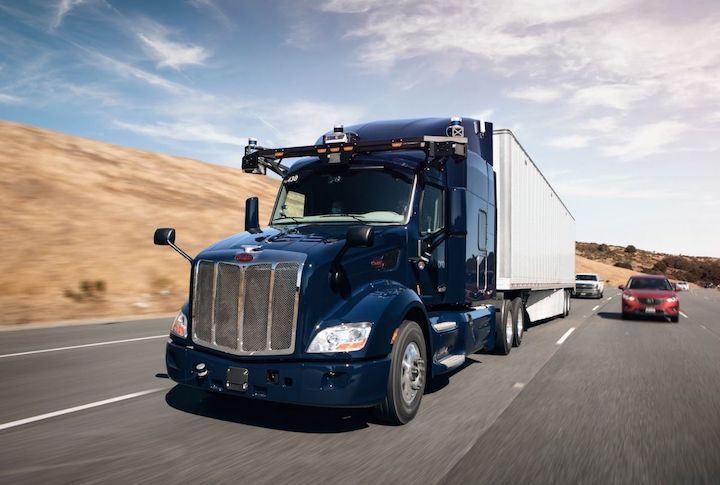Aurora Innovation Inc. will help move cargo for FedEx Corp. in a pilot project in Texas that uses the startup’s technology in a self-driving Paccar Inc. truck. The arrangement marks FedEx’s first trial of autonomous driving.
The vehicles will carry several loads a week for FedEx between Dallas and Houston, with a safety driver behind the wheel and a co-pilot in the passenger seat. The trucks will make the 500-mile (about 800 kilometers) round trips along the Interstate Highway 45 corridor, the companies said Wednesday.

Pittsburgh-based Aurora is one of many startups trying to bring self-driving technology to commercial vehicles, along with TuSimple Holdings Inc. and Plus, which is backed by Amazon.com Inc. Aurora in July agreed to go public in a reverse merger with a special purpose acquisition company valuing the combined entity at $13 billion.
FedEx is playing catch-up in autonomous driving to rival, United Parcel Service Inc., which took a stake in startup TuSimple in 2019 and has been testing the technology since then.
The Aurora-FedEx venture’s first delivery runs will start this week and the package giant will own the vehicles, Sterling said.
Aurora plans to launch a full commercial trucking business, which won’t use safety drivers, in late 2023. The startup also is working on autonomous technology for use in passenger vehicles that can be operated in fleets of robotaxis.
Autonomous trucks are tantalizing for the parcel industry, which uses large 18-wheelers to move packages between sorting hubs. FedEx and UPS, like most trucking companies, have been grappling with a severe driver shortage that’s pushed up wages and weighed on profit. FedEx also operates a freight unit, which had revenue of nearly $8 billion last year.







